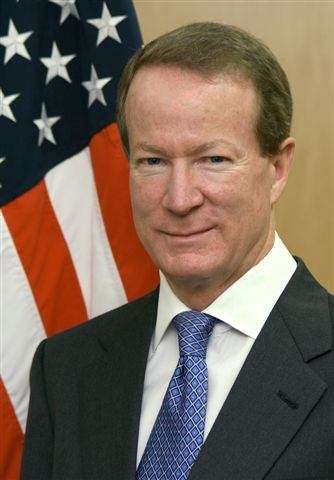State Department's Top Drug Warrior Says Legalization Must Be Tolerated

In remarks to reporters at the United Nations last week, William Brownfield, the assistant secretary of state for international narcotics and law enforcement affairs, called for flexibility in interpreting anti-drug treaties, saying signatories must learn to "tolerate different national drug policies," which means "accept[ing] the fact that some countries will have very strict drug approaches," while "other countries will legalize entire categories of drugs." It was a pretty striking departure from the U.S. government's traditional role as enforcer of prohibitionist orthodoxy. "I would have to take that position," Brownfield explained. "How could I, a representative of the government of the United States of America, be intolerant of a government that permits any experimentation with legalization of marijuana if two of the 50 states of the United States of America have chosen to walk down that road?"
Contrary to the position of the International Narcotics Control Board, Brownfield said the Single Convention on Narcotic Drugs of 1961 and the subsequent agreements that expanded on it can reasonably be read to allow legalization of not just marijuana but "entire categories of drugs." Regardless of their own preferences, he said, signatories must accept "flexible interpretation of those conventions." Otherwise, he warned, "the world is going to divide between those who are exploring a more user-friendly approach and those who are adamant in their opposition."
Brownfield did insist that "whatever our approach and policy may be on legalization, decriminalization, depenalization, we all agree to combat and resist the criminal organizations—not those who buy, consume, but those who market and traffic the product for economic gain." But businesses that produce and sell marijuana or other drugs in jurisdictions that have decided to legalize those activities do not qualify as "criminal organizations." Brownfield suggested that drug warriors must accept such deviations if they want to maintain international cooperation against "transnational criminal organizations" that "both traffic in product and use violence and blood to accomplish their objectives."
Asked about the federal government's attitude toward marijuana legalization in Colorado and Washington, Brownfield described a policy clearer than anything explicitly promised by the Justice Department:
The deputy attorney general's words were that the federal government will not intervene in the application of the laws of Washington and Colorado on marijuana legalization, but will monitor and hold them responsible for performance in eight specifically designated areas….We have a national interest to ensure that this does not cause undue harm….
The United States of America reserves the right and can at any time it chooses enforce the law against marijuana and cannabis cultivation, production, sale, purchase, and consumption in Washington state and Colorado. The deputy attorney general in a public document has asserted that for now we will not do that unless it crosses the line in eight specifically identified categories in those two states.
Deputy Attorney General James Cole did not quite say that in the August 2013 memo to which Brownfield refers, although such restraint was strongly implied.
Brownfield mixed his talk of tolerance with plenty of prohibitionist boilerplate. "We have reduced demand [for] cocaine by nearly 50 percent" since 2004, he claimed, thereby ascribing that change entirely to government policies of dubious effectiveness. He emphasized his own opposition to legalization and continued the Obama administration's habit of caricaturing antiprohibitionists as people "who say, literally, 'Let us legalize everything, and the problem will go away.'" Literally? The administration has yet to produce a single actual example of such critics. "I actually believe there is a good and productive debate going on," Brownfield said. Stupid strawmen do not advance that debate.
"Illicit drugs are illicit for a reason," Brownfield declared. True, but not necessarily for a good reason. "They were made illegal initially," he said, "because they are perceived scientifically to be a toxic substance harmful to the human body in and of themselves and an addictive, or at a minimum, a dependency-producing substance which is both physically and psychologically harmful." Notice how the phrase "perceived scientifically" implies an objective basis for prohibition while leaving room for retreat. After all, it is pretty hard to defend the proposition that marijuana prohibition was based on perceptions that could fairly be described as scientific.
Even when a substance is accurately viewed as potentially addictive and harmful (a description that applies to all psychoactive drugs, along with pretty much everything else that people enjoy), that is not the end of the inquiry. Brownfield implies that prohibited drugs are more dangerous than legal ones, which is clearly not true, as the boss of Brownfield's boss could confirm. And Brownfield takes for granted that the use of violence is morally acceptable "to protect people" from their own choices. In other words, he is still a prohibitionist, but he is a prohibitionist who has been compelled by political circumstances in his own country to concede that there might be some value to other perspectives.
[Thanks to Mike Riggs for the tip.]


Show Comments (37)